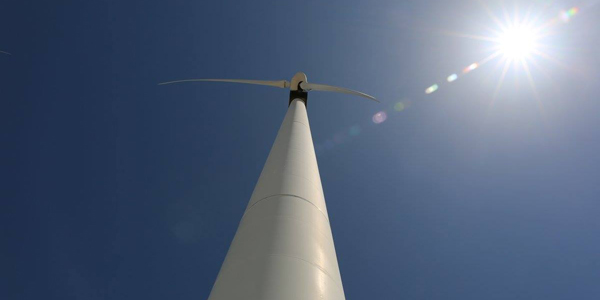By Amanda Durish Cook
FERC on Monday rejected EDF Renewable Energy’s request that MISO be required to devise a special fast-track option in its interconnection queue for projects that can demonstrate readiness for development.
EDF filed the complaint early this year, asking FERC for a “workable” interconnection timeline to ensure that wind developers can secure federal production tax credits before they expire at the end of 2020. (See Renewables Developer Escalates MISO Queue Design Dispute.)
The company said MISO’s year-old, three-phase interconnection queue process is only worsening the backlog of waiting generators and sought a one-time “fast track definitive planning phase mechanism” for generators with at least 80% of site control secured and 10-year power purchase agreements for at least 50% of their capacity.
EDF argued that the RTO is now in a “position far from what it justified using the three-phase process for the 2016 and 2017 definitive planning phase cycles.”
In its April 2 order, FERC said study delays in the interconnection queue are not reason enough for the commission to order MISO to create an accelerated queue option (EL18-55).
“We find that the delays experienced by interconnection customers do not make the existing queue process … unjust and unreasonable,” FERC said.
The commission reminded EDF that the RTO only has to make “reasonable efforts to meet its interconnection queue deadlines” and said that there are factors outside of the RTO’s control affecting the queue.
“EDF has not shown that MISO is performing other than in accord with what the Tariff requires. While we understand that MISO’s revised queue process is intended to minimize delays, interconnection customers are not guaranteed that MISO will meet its projected deadlines,” FERC said.
E.ON Climate and Renewables North America had filed in support of EDF’s complaint and said delays in the RTO’s generator interconnection study process is leaving some developers in “serious jeopardy” over whether they would receive tax credits.
However, FERC agreed with MidAmerican Energy’s contention that wind developers could use the RTO’s provisional generator interconnection agreement to achieve commercial operation before the PTC expires.
Further, MISO has pledged that most transition plan interconnection customers will be eligible for generator interconnection agreements in time to qualify for the tax credit, FERC said.
“We are not persuaded that the existing queue process will result in the commercial harms claimed by EDF,” the commission said.
FERC also agreed with MISO’s argument that EDF had not demonstrated that any part of the current generator interconnection process was unreasonable or discriminatory. But it rejected the RTO’s argument that EDF’s proposed remedy and complaint would undermine the stakeholder process used to design the new queue.
No Ringing Endorsement
However, FERC made clear that its denial of EDF’s complaint was not a show of support for MISO’s current queue design.
“While we find that MISO’s performance of interconnection studies and its [generator interconnection process] have not been shown to be unjust and unreasonable, the repeated and significant delays experienced by interconnection customers in MISO are nevertheless a cause of great concern, as they have resulted in considerable uncertainty for interconnection customers in MISO’s queue,” the commission said. “We understand that the achievement of a [generator interconnection agreement] in a timely and reasonably predictable manner is vital to the development of all new generation in MISO and that MISO’s ongoing queue processing delays are a significant problem for generation developers.”
FERC also noted that while the RTO “is somewhat unique in terms of the sheer volume of interconnection requests it receives,” it is not aware of any other RTO plagued with similar delays. It noted the technical conference it held this week focusing on affected systems-related interconnection issues hampering the construction of renewable projects. (See related stories, Renewable Gens Face Off with RTOs at Seams Tech Conference and Developers, Tx Providers Seek FERC Direction on ‘Affected Systems’.)
FERC urged MISO to consider improvements to its queue, telling it should look to other RTOs for best practices and examine whether additional resources would alleviate queue delays.





